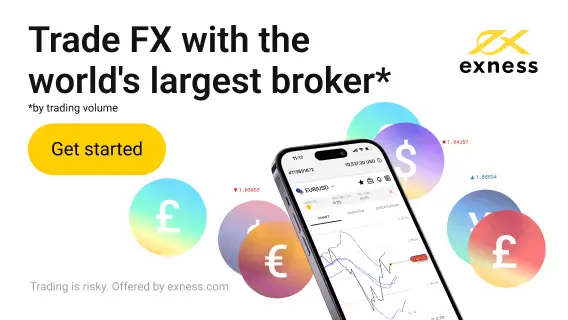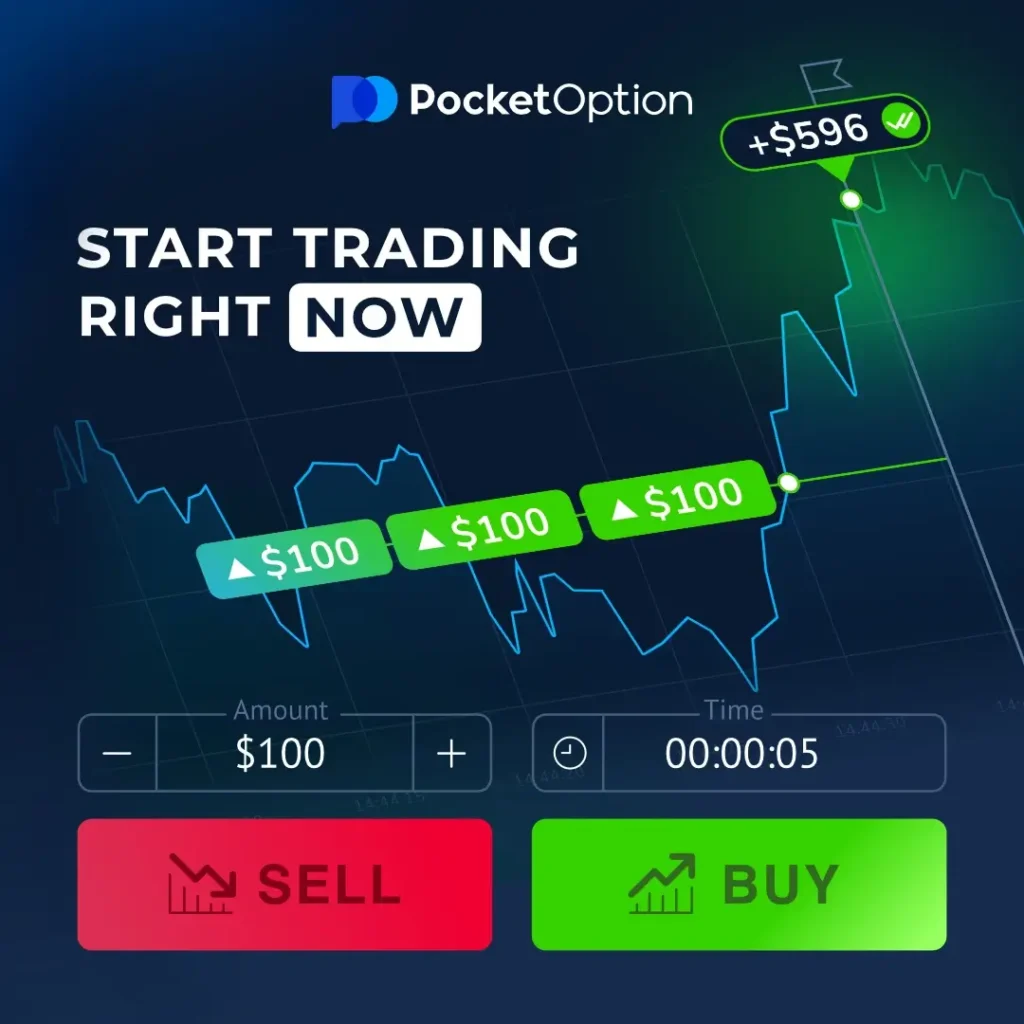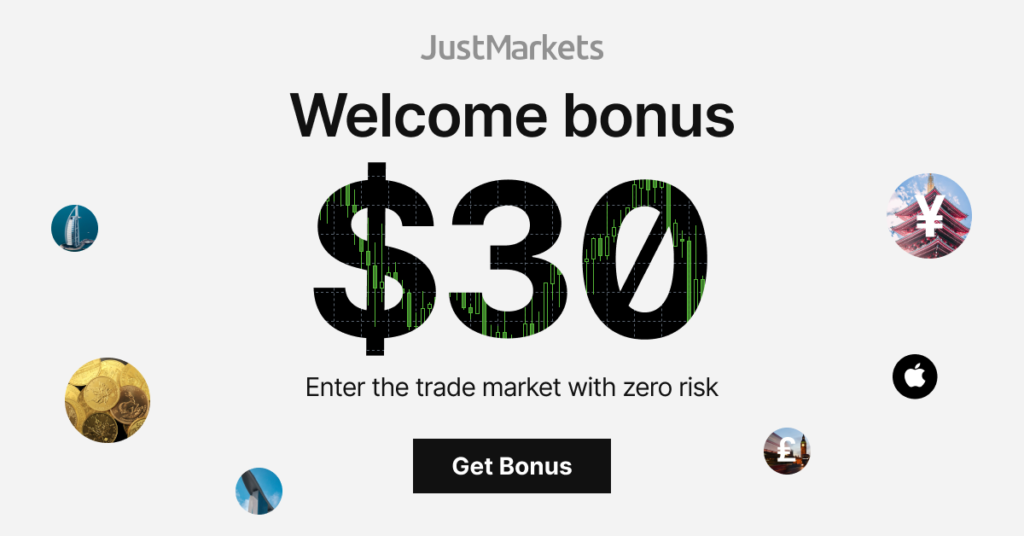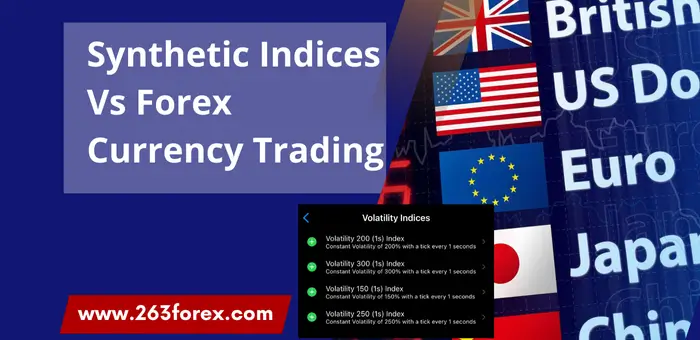When I first discovered synthetic indices back in 2016, I was deep in forex losses. I knew about spreads, slippage, and news spikes—but I didn’t expect Deriv’s synthetic charts to move 24/7 with zero news drama.
Since then, I’ve flipped accounts on both sides. And here’s the truth: both markets can change your life—or blow your account—if you don’t respect the beast you’re trading.
Let’s break down the real differences between synthetic indices vs forex so you can choose what works for you.
⚖️ Difference Between Forex and Synthetic Indices (2025 Edition)
After trading both for years, I can confidently say the differences between synthetic indices vs forex go way beyond just market hours or volatility. If you’re trying to choose between forex and synthetic indices, here’s what really matters.
🧩 1. Underlying Market Logic
Synthetic Indices (e.g. V75, Boom 1000):
These are engineered markets — they don’t rely on actual currencies or commodities. Instead, Deriv’s algorithm generates 100% synthetic price movements based on mathematical formulas. That means:
- No news events
- No central banks
- No surprises from NFP or CPI data
Each synthetic index is designed to behave differently. For example:
- Volatility 75 trends hard and fast
- Boom 1000 spikes upward randomly
And yet, all are precise and predictable enough to build strategies around — if you study them properly.

Forex Pairs (e.g. EURUSD, GBPJPY):
Forex moves based on real world events. Everything from interest rate decisions to global conflict, and Trump’s tarrif wars can send these markets flying. You’re trading the relative strength of actual economies, which means:
- USD strength = global shockwaves
- JPY = safe haven during war
- GBP = vulnerable during political drama
You need both technical and fundamental awareness to survive here.
🌪️ 2. Volatility Differences
Synthetic Indices:
These beasts are consistently volatile.
Every index has its own “volatility profile” baked into the algorithm. That means:
- V75 and V100(1s) are extremely fast-moving
- Step Index is slower and ideal for conservative traders
- Boom & Crash spike in one direction, great for sniper entries
Because there’s no low-volume time like weekends or holidays, they’re always moving. Perfect for scalpers who want daily setups — even on Sunday night.
Forex Pairs:
Forex has what I call scheduled chaos.
- Monday mornings are slow
- Tuesday to Thursday = peak volatility
- Friday afternoon dies out
- NFP week? Expect madness.
News events like CPI, FOMC, and rate hikes can override any technical setup. A 200-pip candle during FOMC is not rare.
So while volatility is real in forex, it’s less predictable.

🕒 3. Trading Hours & Availability
Synthetic Indices:
24/7/365 — no breaks, no excuses.
You can trade Christmas morning, Sunday night, or Tuesday at 3AM. And you’ll still get consistent volatility.
This is one reason many African traders love synthetics: you can hustle after work or during downtime. No need to wait for the London session.
Forex:
Open from Monday 12AM to Friday 10PM (GMT).
- Closed on weekends
- Pauses during major global holidays
- Peak action happens during the London and New York overlap
If you miss those windows, you may find yourself trading dead markets.
🏦 4. Regulation & Broker Access
Synthetic Indices:
Only offered by Deriv, which is licensed in multiple jurisdictions (e.g. MFSA, VFSC), but not globally regulated like forex brokers. You can’t compare them directly to Tier-1 forex brokers in the UK or US.
That said, Deriv has been reliable for withdrawals and platform stability in my 9+ years of use.
Forex:
Heavily regulated, with thousands of brokers to choose from:
- FCA (UK)
- ASIC (Australia)
- FSCA (South Africa)
You get options like ECN/STP models, segregated accounts, negative balance protection, and more.
💰 5. Market Size & Liquidity
Forex:
As of 2022 data, the forex market moves over $7.5 trillion daily — the largest financial market in the world.
You’ll never struggle with liquidity unless you’re trading obscure exotic pairs or using shady brokers.
Synthetic Indices:
Exact daily volume isn’t publicly available because it’s a closed-loop system.
Only Deriv provides it — and you trade against their pricing engine.
But in practice, there’s never been slippage or liquidity issues in my own trading, even on large position sizes.
🔁 Similarities Between Synthetic Indices and Forex Pairs
Despite the differences between synthetic indices vs forex, these two share a surprising amount of common ground. If you’ve learned how to trade one, you’ll recognize many tools and tactics in the other.
Let’s break down what they have in common:
💻 1. Accessible to Anyone With Internet and Capital
Both markets are built for retail traders like us. You don’t need $1,000 to get started — even $10 can open a micro account on Deriv or most forex brokers.
You just need:
- A verified account
- Internet connection
- A trading strategy (even a demo one)

🔧 2. Both Offer Leverage — Use It Wisely
Whether you’re trading EURUSD or Volatility 75, you can open positions much larger than your actual balance.
- On Deriv, you’ll see leverage up to 1:1000
- On forex brokers, leverage varies — 1:30 in the EU, up to 1:500 in Africa
But remember: leverage is a double-edged sword. It helps you flip accounts… or wipe them clean.
⏰ 3. Trade 24 Hours a Day
- Forex: Open 24/5 (Monday to Friday)
- Synthetics: Open 24/7 (even on Christmas)
For night owls and weekend warriors, synthetics have the edge. But in general, both let you trade outside of 9–5 business hours.

📊 4. Technical Analysis Is King
Whether you’re trading GBPUSD or Boom 1000, price action and chart patterns still apply.
Common strategies work in both markets:
- Support & resistance
- Trendlines
- Fibonacci
- Candlestick patterns (engulfing, pin bars, etc.)
🤖 5. Automated Bots and CopyTrading Available
You can automate your strategy on both:
- Forex: via MT4/MT5 expert advisors
- Synthetics: via Deriv bots or MT5 scripts
And if you’re not ready to trade solo? You can copy successful traders on both platforms using copytrading tools.

🧪 6. Demo Accounts Work the Same Way
Want to test a new scalping system on Volatility 25? Or simulate a news breakout setup on EURUSD?
You can do it all on demo — no risk, just practice.
Both platforms offer free demo accounts with live price feeds.
📈 7. Pips and Price Action Matter
Yes, they both use “pips” to measure price movement — though the actual value per pip varies.
And in both markets, the focus is on catching movement, whether it’s 10 pips on GU or 10,000 points on V75.

📦 8. Both Support CFDs and Binary Options
- You can trade CFDs in both — meaning you speculate on price movement without owning the asset.
- You can also trade binary options on both — betting whether price goes up or down in a fixed time frame.
Great for fast scalps or short-term setups.
⚙️ 9. Strategies Cross Over Easily
What works on one market often works on the other.
- Price action
- Support/resistance
- Breakout + retest setups
- Trend-following with EMAs or RSI
I’ve personally used the same 3-candle reversal system on both forex and synthetics — with tweaks based on volatility.

🧭 Which Market Should You Trade — Synthetic Indices vs Forex?
This question comes up all the time, especially from new traders. The truth? It depends on your personality, lifestyle, and what you’re trying to achieve. I’ve traded both since 2016 — here’s my take:
💥 Trade Synthetic Indices if…
You want clean, constant volatility
Synthetics don’t care about NFP, CPI, or war in Ukraine. V75 is volatile every single day. Boom 1000 spikes whether it’s Monday or Sunday night.
You want to trade anytime — including weekends
If you’ve got a day job or just prefer midnight sessions, synthetics give you that freedom. But be careful — this 24/7 access makes it easy to overtrade and burn out.

You’re into scalping and short-term flips
Indices like V100(1s) and Crash 300 are tailor-made for fast setups. If you love catching moves on the M1 or M5 chart, you’ll feel right at home.
You don’t want to follow news
No central banks, no inflation reports, no rate hikes to worry about. It’s just you, the chart, and the algorithm. All price action.
You want a simple battlefield
Synthetics are clean — no distractions. It’s a great place to master price action without worrying about the macro world.
🌍 Trade Forex if…
You enjoy global economics and news trading
Forex is real-world. Currencies move because of GDP data, war, interest rates, and political shifts. If that excites you, you’ll love this game.
You want to trade with regulated brokers
Forex has strict regulation in most countries. You’ll find ECN brokers, negative balance protection, and proper dispute resolution.

You’re okay with volatility that comes and goes
Forex isn’t always moving. Mondays can be quiet, Fridays can be weird. But during major news events, the market comes alive — and you better be ready.
You prefer structure and scheduled sessions
Forex follows the sun — Tokyo, London, New York. If you like knowing when the market is hot and when to walk away, this rhythm might suit you.
You’re happy combining fundamentals + technicals
In forex, news and charts go hand in hand. If you can blend both, you’ll have an edge.

🧠 Final Tip from Jafar
Trade where your brain feels most calm.
If you’re always confused by news or scared of Sunday gaps — start with synthetics. If you hate algorithmic movement and want a real-world challenge — go forex.
Or do what I do:
Synthetics for speed. Forex for structure.

Ultimately, the best choice depends on your individual trading style, risk tolerance, and goals. It might also be helpful to experiment with both markets using demo accounts to gain experience and see which one aligns better with your trading preferences.
Synthetic Indices vs Forex: Head-to-Head Comparison Table
| Feature | Synthetic Indices | Forex |
|---|---|---|
| Broker | Deriv (MT5) only | Multiple (MT4/MT5/cTrader) |
| Available Hours | 24/7 (no weekends) | 24/5 (closed weekends) |
| News Impact | None | High (especially on USD, JPY pairs) |
| Spreads | Often fixed, low | Varies, often higher during news |
| Leverage | Up to 1:1000 | Regulated brokers: up to 1:500 |
| Slippage | Rare | Common (especially with bad brokers) |
| Trading Strategy | More technical, fewer fundamentals | Technical + news events |
| Withdrawal Limits | Deriv limits based on method | Depends on broker |
| Market Maker Risk | Deriv creates the market | Broker/LP-based ECN or MM |

🤔 What Are Synthetics in Forex?
Let’s clear this up — synthetic indices aren’t part of traditional forex. They’re not real currencies, and they’re not traded on the interbank market. But depending on where you’re trading, “synthetics” can mean a few different things.
Here’s what traders might be referring to:
1. Synthetic Indices (Deriv Style)
These are algorithm-driven markets created by Deriv. They simulate price movement without being tied to real-world assets — no USD, no oil, no gold. Just engineered volatility.
Examples include:
- Volatility 75 Index (V75)
- Boom & Crash Indices
- Step Index
- Range Break 100
They move 24/7, have no news impact, and follow mathematical patterns — which makes them perfect for technical traders and scalpers.

🔄 2. Synthetic In Forex Examples
Now here’s where it gets more technical.
A synthetic currency pair is a position you build manually by combining two other forex pairs to mimic a third. It’s mostly used by institutional traders for hedging or when a certain pair isn’t directly available.
Example:
- You want to trade EUR/JPY
- But it’s not offered or too illiquid
- So you buy EUR/USD and buy USD/JPY
- The USD cancels out, leaving you with a synthetic EUR/JPY
It’s real, it works — but it’s complex, and not practical for retail traders unless you know how to manage exposure across multiple trades.t.
3. Currency Indexes
These are baskets that show how one currency is performing against others.
The most well-known is the US Dollar Index (DXY) — which tracks the USD against EUR, JPY, GBP, CAD, SEK, and CHF.
It’s not a tradable pair, but it helps forex traders gauge USD strength overall.

4. Synthetic ETFs and Derivatives
Some brokers (especially outside of MT5) offer synthetic ETFs — instruments that mimic a group of currencies, stocks, or commodities. They’re engineered for exposure, not real ownership.
Think of it like this:
You’re trading the idea of a market — not the actual asset.
🧠 Bear In Mind
If you’re trading on Deriv, the term synthetics usually refers to their exclusive volatility-based markets. But in traditional forex circles, synthetics are more about engineered combinations or indexes — useful for strategy building, but not directly tradable.
Want to learn more about Deriv’s synthetic indices specifically? Check out my guide to how they work and how to flip small accounts.

These synthetic assets provide traders with various ways to engage with currency markets and related volatility, offering opportunities that might not be available through traditional forex pairs alone.
FAQs On Synthetic Indices vs Forex
Synthetic indices are algorithm-based markets that simulate price movement. They aren’t real currencies — instead, they’re offered by brokers like Deriv and designed to mimic volatility 24/7 without being affected by news or real-world events.
Forex is based on real-world currencies like USD, EUR, JPY — and is affected by economic data, politics, and central banks.
Synthetic indices are simulated markets, not tied to real assets, and move based on preset algorithms. They’re open 24/7 and aren’t affected by news.
Unlike forex, synthetic indices are moved by mathematical algorithms, not supply and demand.
Each synthetic index has its own coded volatility — e.g., V75 trends hard, while Boom & Crash spike in single directions.
No.
Forex is regulated globally by bodies like the FCA, FSCA, or ASIC.
Synthetic indices are exclusive to Deriv and fall under their own licensing structure. While Deriv is licensed in multiple countries, synthetics are not globally regulated the same way forex is.





Other Posts You May Be Interested In
Deriv Synthetic Indices Lot Sizes Guide (V75, Boom & Crash, Step Index)
📅 Last updated: May 14, 2025 ✍️ Written by: Jafar Omar ✅ Fact-checked by: Munyaradzi [...]
How To Trade Synthetic Indices On MT5 📈(Updated 2025)
📅 Last updated: May 6, 2025 ✍️ Written by: Jafar Omar ✅ Fact-checked by: Munyaradzi [...]
Boom and Crash Indices on Deriv: Full Beginner Guide (Updated 2025) 📉📈
📅 Last updated: May 7, 2025 ✍️ Written by: Jafar Omar ✅ Fact-checked by: Munyaradzi [...]
HFM Demo Contest: Win Real Cash Prizes Without Any Risk 🎮
📅 Last updated: July 6, 2024 ✍️ Written by: Jafar Omar ✅ Fact-checked by: Munyaradzi [...]
How To Do Deriv Account Verification Fast (ID & Proof of Address) 2025
📅 Last updated: May 18, 2025 ✍️ Written by: Jafar Omar ✅ Fact-checked by: Munyaradzi [...]
💸 How to Grow a Small Account Trading Volatility Indices on Deriv (2025)
📅 Last updated: May 7, 2025 ✍️ Written by: Jafar Omar ✅ Fact-checked by: Munyaradzi [...]